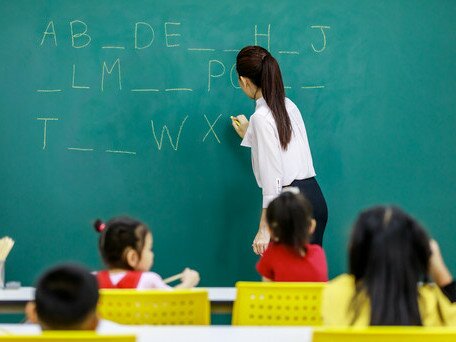The missing link: Principal well-being literacy and its drivers and outcomes
- 项目计划:
- 优配研究金
- 项目年份:
- 2023/24
- 项目负责人:
- 陳君君博士
- (教育政策与领导学系)

In the long run, this project will help build well-being promotion education systems by making every school as a well-being promotion school.
Principal well-being is critical for individual principals, schools, and society (Collie, Granziera & Martin, 2020; PI et al., under review a; Wells & Klocko, 2018). Empirical evidence shows that principals around the world are experiencing professional dilemmas stemming from constant change and unprecedented uncertainties (Pollock & Wang, 2020; Riley et al., 2021). In Hong Kong, around 39% of 356 Hong Kong principals reported suffering from depression or exhaustion due to political, social, and academic challenges (PI, Walker, & Riley, under review b). However, current research mainly focuses on understanding and promoting principal well-being outcomes rather than well-being processes. Principal well-being literacy, a process-oriented well-being construct, is a ‘missing link’ in the current principal well-being literature (Oades, 2017) both in Hong Kong and internationally. Well-being literacy is defined as ‘the capability of comprehending and composing’ well-being information, knowledge, and skills, ‘sensitive to contexts, used intentionally to maintain or improve the well-being outcomes of oneself and/or others’ (Oades et al., 2021a, p. 327).
School principals are the gatekeepers for all school initiatives. Informed by the contemporary notion of ‘principal first’, principals are encouraged to cultivate their well-being to ‘lead, self-care, and lead to care.’ (Klap et al., 2021; PI, 2021). Hence, principals need to be positioned firmly at the center of school well-being promotion research to strengthen their well-being literacy. This would help principals take care of themselves and model this to staff and students. It would also encourage principals to search for and deal with well-being-related information, including its use and decisionmaking to establish well-being promotion schools, ultimately aiming for a ‘wellness society’ as called for by the OECD 2030 Agenda (OECD, 2019a). There is, therefore, an urgent need to investigate principal well-being literacy to improve the quality of education and the welfare of individual principals, schools, and society as a whole.
Based on a pilot study of principal well-being literacy and the PI’s previous project on principal well-being (GRF18611120), this proposed project will respond to the aforementioned concerns with four main aims. The first aim is to develop and validate a Principal Well-being Literacy Instrument (PWLI). The second aim is to examine the state of principal well-being literacy. The third aim is to identify the influential individual, institutional, and contextual drivers of principal well-being literacy. The fourth aim is to explore the relationships among drivers, principal well-being literacy, and wellbeing outcomes.
The project will employ an exploratory sequential mixed-methods design with qualitative and quantitative strands. The qualitative strand consists of two studies. Study 1 involves individual semistructured interviews with 24 principals from Hong Kong to address the four aims qualitatively. Study 2 will use a 3-expert panel interview to develop the content validity of the PWLI. The quantitative strand contains two survey studies to respond to the four aims by triangulating the qualitative findings. Study 3 will establish the structural validity of the instrument with a sample of approximately 100~150 principals. Study 4 will quantitatively address all four aims to extend the generalizability using approximately 350~400 principals.
This project will make four major contributions. First, the project will provide empirical insights to advance the theoretical framework on principal well-being by filling in the ‘black box’ (i.e., principal well-being literacy) between drivers and outcomes of principal well-being. This project will enhance the well-being and performance of individual principals and their schools. Second, through a robust validation procedure, this project will produce a multidimensional PWLI, that can potentially accelerate a balanced investigation of principal well-being literacy using diverse research methods, including advanced quantitative methods. Third, this project will enable policymakers to identify policy priorities to better craft related public policies (i.e., professional standards for principals) for cultivating principal well-being literacy to establish well-being promotion schools in Hong Kong. In the long run, this project will help build well-being promotion education systems by making every school as a well-being promotion school. This will be one step ahead of the OECD’s call for a ‘wellness society’ by enhancing public health in Hong Kong and beyond. Fourth, this project will produce a practical blueprint for supporting principal well-being literacy building, particularly as individual, institutional, and contextual drivers identified are malleable to future solution-focused interventions in Hong Kong and beyond.








